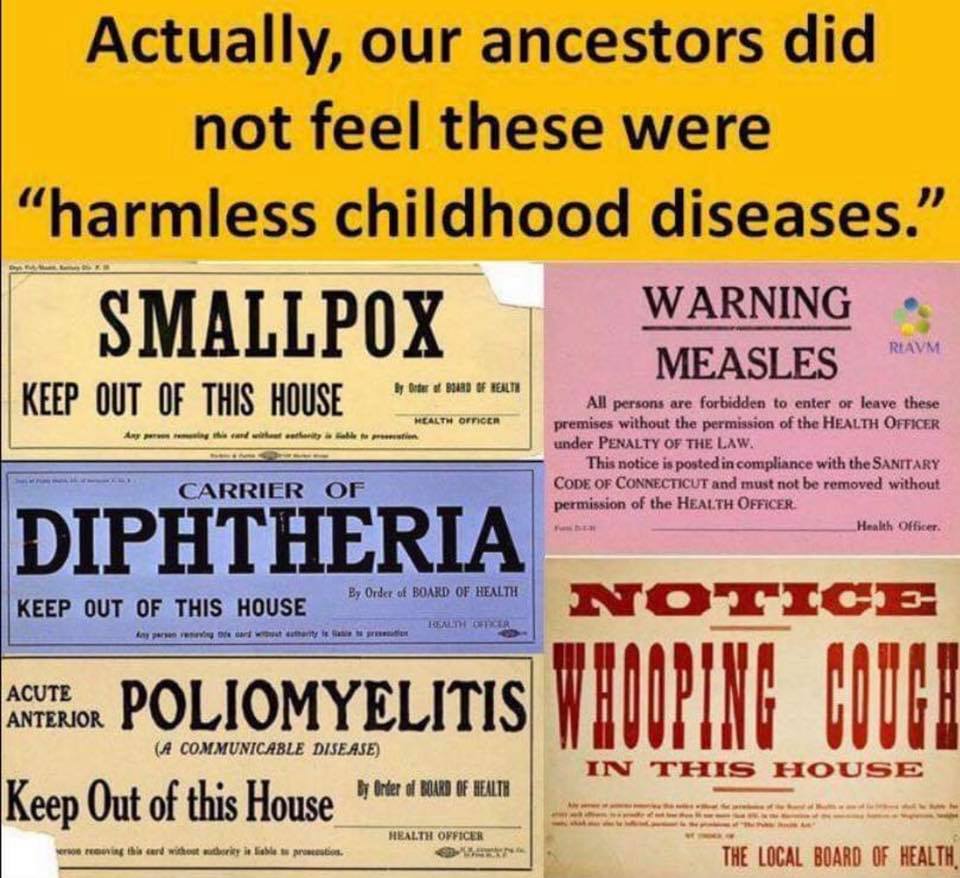Measles is making a come-back on the global stage (Madagascar, the Philippines, Japan, Europe, and the US). And, sadly, this vaccine-preventable disease is popping up again in New Zealand: most recently in the Waikato, Christchurch, Dunedin, and now Auckland.
New Zealand, like the US, hasn’t had ‘home-grown’ cases of measles for some time now. The index case for Auckland apparently contracted the disease overseas, but is described as not infectious while on their flight into the country. However, the individual was infectious when they visited a health centre in the city, and this is problematic.
Measles is highly infectious: one individual can infect up to 18 others, so that the virus’s spread can be exponential if it’s brought into an area where herd immunity has dropped below what’s needed to protect those who haven’t been, or can’t be, vaccinated. This is what happened in one of the US outbreaks, which started with 3 unvaccinated children and has now spread to at least 70 people – most of whom where unvaccinated.
It also survives for up to 2 hours after the infective person has left the room (eg a doctor’s waiting room: great opportunity for spread there).
And even in ‘first-world’ countries, with first-world health care, on average 1 in 1000 people with measles die. The death rate is much higher in poorer countries like Madagascar & the Phillipines.
Typically the usual myths appeared quickly in any comments’s threads associated with these stories in social media, although it’s also good to see an increasing number of people working to counter them. So, for example:
measles is a benign disease, so why is everyone so worried?
Well, sorry, Fiona, but for many it wasn’t, & it isn’t. There’s a reason notices like this were commonplace in the US (for example), before vaccination became a thing.

if your kids are vaccinated, why are you frightened of my unvaxxed children?
We aren’t frightened for ourselves, but for those with kids too young to be vaccinated (remember little Riley?), or those who are immunocompromised, or the elderly (because our immune system’s strength does wane with time.
And the one that shows a sad inability to grasp the maths:
in outbreak X, more people with measles were vaccinated!
If you look at the raw numbers, that may be the case – but it’s not true for the current Phillipines outbreak or in Washington State. But let’s do a thought experiment.
Let’s imagine a community where 10,000 people are vaccinated, and 100 aren’t. Let’s assume that the vaccine has a ‘failure’ rate of 10% (to make the maths easier), so that 1,000 of the vaccinated group aren’t actually protected against measles. And let’s use measles’ infectivity of 90%.
Someone who’s caught measles abroad comes into that community, & exposes everyone in it to measles. Of the vaccinated group, 900 of the 1,000 where the vaccine didn’t take get sick. So d0 90 of the pool of unvaccinated people. You could look at this & say look, many more vaxxed than unvaxxed people got sick, ergo the vax isn’t worth it.
And you’d be very wrong. Why? Because the actual rate of measles infection in the unvaxxed group is 90/100 – that’s 90%. Whereas, in the vaccinated group, 900/10,000 become ill – that’s a 9% rate of infection. (In the Phillipines, of the ~12,000 who’ve become ill, around 8,000 hadn’t been vaccinated.)
And there’s the perennial claim that the MMR vaccine causes autism (thanks for nothing, Andrew Wakefield). There’s a very large body of data that refutes that one, & I’ll be discussing it in my next post.

Charles S Lineback says:
Quote “if your kids are vaccinated, why are you frightened of my unvaxxed children?”
If your kids wash their hands after going to the bathroom, why are you frightened of my unvaxxed children not washing their hands?
Get me a logic professor on this one and avoid families who do not believe in washing their hands.